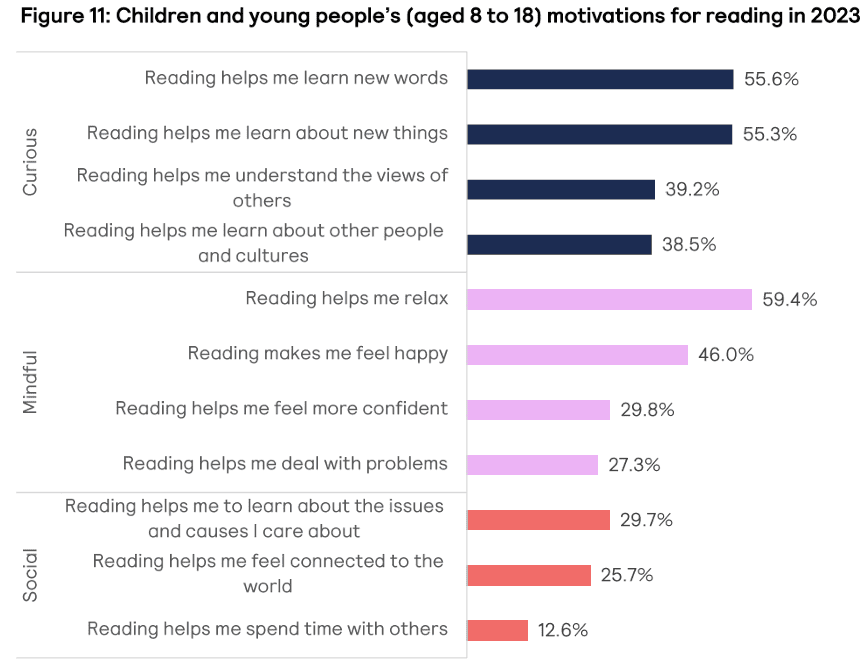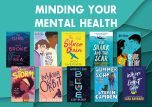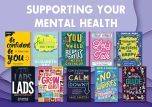Six Ways Reading Can Improve Wellbeing
In 2023, 1 in 5 eight to sixteen-year-olds were identified as having a probable mental disorder.
(Mental Health of Children and Young People in England, 2023 — wave 4 follow up to the 2017 survey — NHS Digital)
Despite these concerning figures, mental health is still not given the attention it deserves. Just over one in three children and young people with a diagnosed mental health condition get access to NHS care and treatment, leaving the majority with little to no support.
Teachers and librarians can play a pivotal role in aiding young people experiencing mental health difficulties, especially because reading literature can be an effective tool to support and improve mental health.
From: Reading for mental wellbeing in 2023 (nlt.cdn.ngo)
This survey, by The National Literacy Trust, asked children and young people to reflect on the reasons why they read. Almost 60% said “reading helps me relax”, with almost half of children saying it made them feel happy and 30% saying it made them feel confident and that it helped them deal with problems. In a world where children and young people are struggling with mental health and support systems are limited, reading can be of help.
Six Ways Reading Can Improve Wellbeing
1. Feeling heard.
Allowing children and young people to see their own experiences reflected safely within the pages of a book gives many benefits. Literature discussing mental health reassures the reader they are not alone and isolated. It validates their experience and reminds them that their story matters and deserves to be heard, especially when they may not get the support they need elsewhere. Books that cover mental health topics are also invaluable guides, often signposting where and how to get help. They highlight that many of those who have a mental illness will recover and live meaningful lives, giving hope to the reader if they are experiencing a similar struggle.
2. Reduces stress.
Delving into the pages of a book is a calming escape from everyday life, allowing the reader to disengage with any anxieties or worries. Research suggests that “Children who engage with reading are three times more likely to have high levels of mental wellbeing than those who do not.” (National Literacy Trust, September 2018). Reading as little as six minutes daily can reduce stress levels by 60%, lowering the heart rate and easing muscle tension.
3. Raising Awareness.
Engaging with positive and inclusive books which examine different mental health conditions allows readers to understand mental wellbeing in more detail. Mental health is wide-ranging and often confusing, so by broaching topics within the pages of a book, readers gain insight into the reality of living with a mental health disorder. Narratives help go beyond the stereotype, showing conditions in all their complexity, reiterating that a person is not defined by their diagnosis.
4. Encouraging empathy.
Reading can reduce the stigma around mental health. Despite positive changes in the awareness of mental health, beliefs can persist that if you are feeling mentally unwell, there is something inherently ‘wrong’ with you. This is not the case. Unfortunately, it is not uncommon to ‘other’ those who have been diagnosed with a mental health disorder, resulting in bullying, discrimination, and stereotyping. Books often confront and challenge preconceived notions and encourage critical thinking, and the emotional language that stories often use encourages compassion and connection, resulting in empathy and acceptance.
5. Building resilience.
By offering a chance to navigate experiences such as bullying or the death of a loved one within the confines of a book, a safe space is created to explore complex subjects emotionally. This exposure can equip readers for real-life scenarios. “Children who are the most engaged with literacy are three times more likely to have higher levels of mental wellbeing than children who are the least engaged.” (Clark & Teravainen — Goff, 2018). This highlights the power that literature has in building emotional resilience.
6. Open up conversations.
Young adult literature is useful in confronting issues that can be difficult (and occasionally awkward) to discuss but by talking about characters rather than themselves, students can explore issues that they or their loved ones might be experiencing without feeling overly exposed. The subject of mental health should not be avoided because this adds to the stigmatisation, which in turn makes it harder for students to break their silence when they are struggling. By introducing readers to books that tackle deep themes, librarians create opportunities for meaningful conversation within a safe space.
Further Information & Resources:
Our Book Collections: Mental Health Books for Teens & Guardians (badgerlearning.co.uk)
National Literacy Trust (Children's Mental Health Week 2024 - Charlie Mackesy | National Literacy Trust) have partnered with Penguin Random House and Charlie Mackesy.
Place2Be have developed free resources (Schools - Children's Mental Health Week: childrensmentalhealthweek.org.uk)
Young Minds Resources: Mental Health Resources For Children and Young People | YoungMinds
Tips for Parents: Parents' Toolkit — BBC Bitesize
FREE access to resources from Headspace: Headspace for Educators
Mentally Healthy Schools: Home Page
Self-Care Strategies: Self-care | Anna Freud





